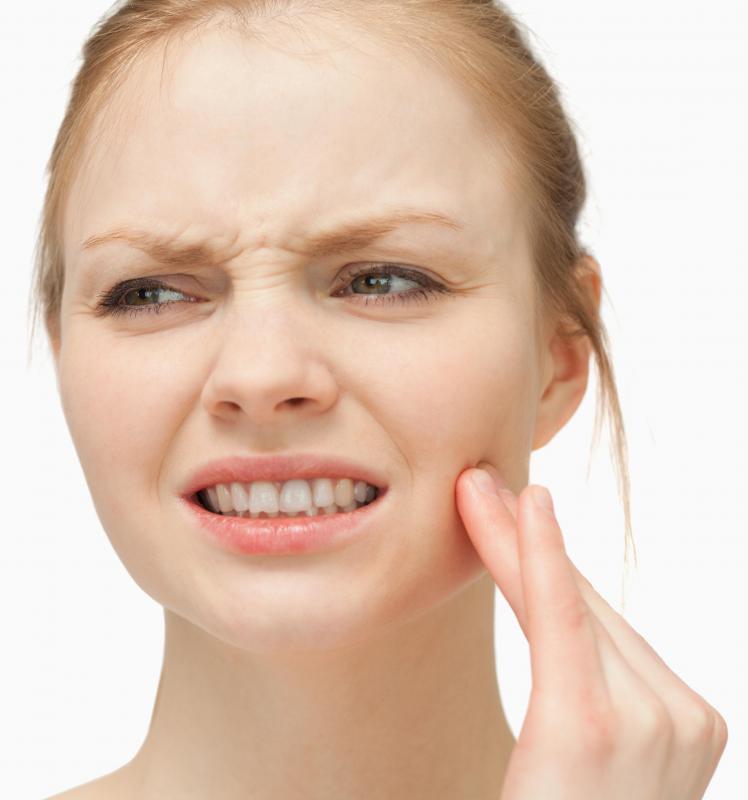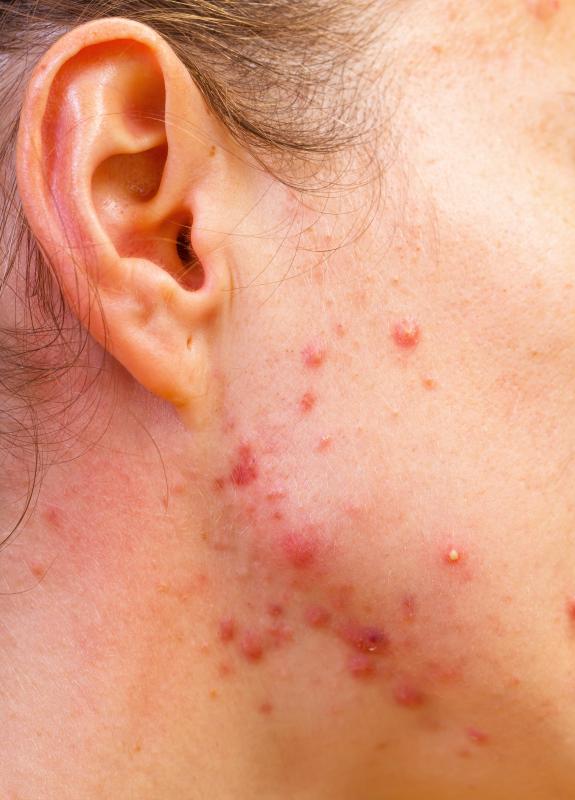At TheHealthBoard, we're committed to delivering accurate, trustworthy information. Our expert-authored content is rigorously fact-checked and sourced from credible authorities. Discover how we uphold the highest standards in providing you with reliable knowledge.
What are the Different Types of Mouth Blisters?
Mouth blisters are irritating and occasionally embarrassing. They may be inside or outside of the mouth. There are various types of mouth lesions, including the common cold sore and canker sore. Brought on by a variety of causes, mouth blisters may last several days. Some types are treatable and others go away on their own.
Canker sores are ulcers found inside the mouth. Theses mouth blisters are also called aphthous ulcers. They are visible to the naked eye. Whitish yellow in color, these shallow sores appear with a red border. Though basically round, they are irregular in shape with jagged edges.

A canker sore may develop on the cheeks, gums, tongue, or lips — just about anywhere inside the mouth. These mouth blisters range in size, though they are typically smaller than the diameter of a pea. They may cluster or appear singularly. Mouth blisters like this cause additional irritation when eating or even talking. They are extremely painful to the touch.

A canker sore generally goes away on its own within five to 10 days. Though tremendously painful at any size, any canker sore larger than 0.5 inch (1.27 cm) in diameter should be seen by a physician. A physician might be able to shed light on whether it’s actually a different type of ulcer or mouth blister.
Canker sores may be hereditary. They are not contagious, though. Though there is not a cure for these mouth blisters, there are numbing pastes that help ease the pain of a breakout. Staying away from acidic products such as tomatoes and orange juice will also help ease the pain of a canker sore.
Unlike canker sores, cold sores are contagious. Also called oral herpes, cold sores are lesions found surrounding the outside of the mouth. They are caused by the herpes simplex virus type 1 (HSV-1).

Cold sores can also be caused by herpes simplex virus type 2 (HSV-2), which is commonly known as genital herpes. The oral herpes virus may be transmitted through sexual acts, particularly when the infected person is shedding the virus. It may also be spread through kissing and sharing beverages.
HSV is a latent virus, meaning that after the first breakout, it often lies dormant beneath the skin for some time. In the case of oral herpes, a cold sore may occasionally appear during a particularly stressful time. A canker sore, on the other hand, may be triggered after a minor cut on the lip or accidental bite of one’s cheek.

Oral herpes mouth blisters are red and filled with fluid. These cold sores usually last a week or two, and crust over before disappearing without leaving a scar. Those who have experienced many breakouts might be familiar with a tingling or slightly itchy sensation that occurs right before a breakout.
AS FEATURED ON:
AS FEATURED ON:















Discussion Comments
Herpes simplex type 1 blisters on and inside the mouth is a growing problem. Most people don't know that it is possible to be infected with this virus through kissing and oral sex. The virus is very contagious and it may not cause symptoms right away. So someone may carry the virus for a long time before experiencing the first breakout.
That is why it is important to be very careful. Having only one sexual partner who is healthy is the best way to avoid this problem. It can be embarrassing to talk about these things but it has to be talked about. And people need to keep in mind that some may not be aware that they have virus or may not reveal it prior to sexual activity.
@SarahGen-- Yea, no one knows for sure why they happen. I've heard various theories like vitamin or mineral deficiencies or changes in pH levels in the mouth triggering them. These are not proven but I do think that it's a good idea to take a multivitamin when you get them. I personally feel that they go away faster when I take a multivitamin. Even if canker sores are not caused by vitamin or mineral deficiencies, there is no harm in supplementing.
Taking vitamins is even beneficial for cold sores because cold sores tend to occur when we're not feeling our best. Many people get cold sores just when they're sick or in winter when their immune system is not as strong. A weak immune system allows the cold sore virus, which is lying dormant otherwise, to become active.
I get a canker sore occasionally. They're not large and don't cause too much pain as long as I avoid acidic foods and very hot or cold drinks. They go away on their own too but I've not been able to figure out what causes them. My doctor said that they don't know for sure either but it's harmless and nothing to worry about.
I know they're harmless and it's a very good thing that they're not contagious. I wish I knew what caused them though so I could prevent them.
Post your comments